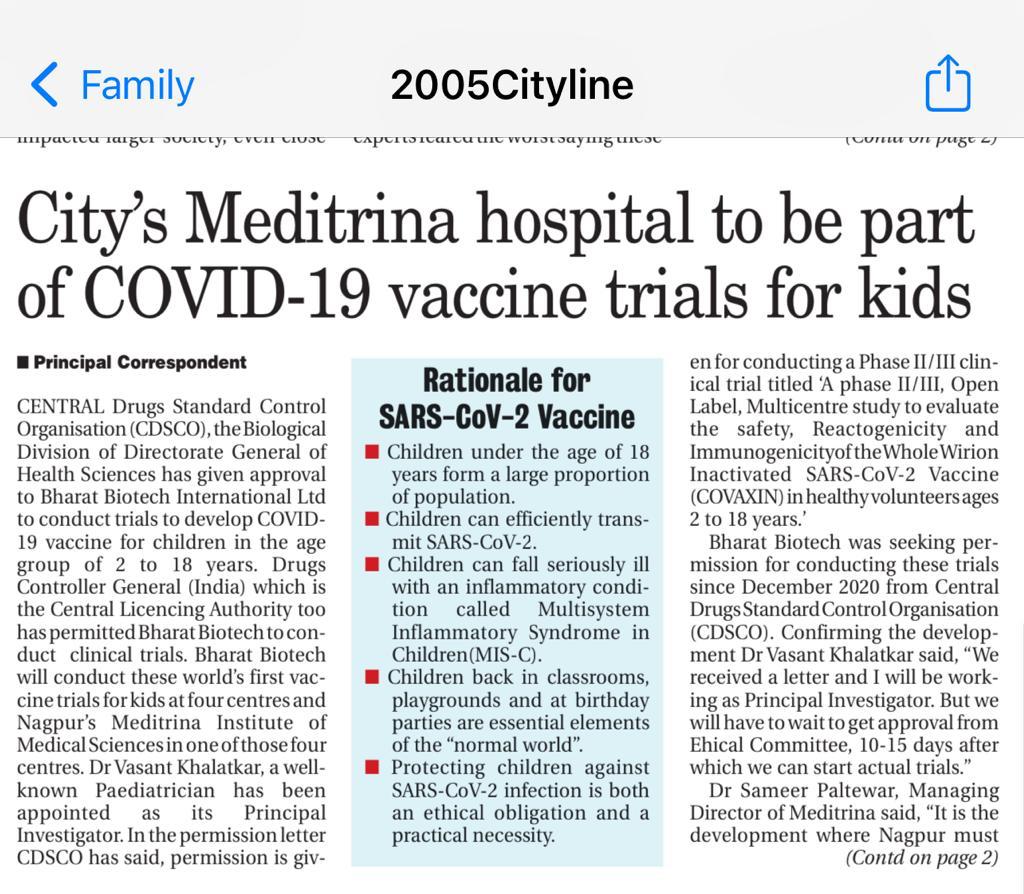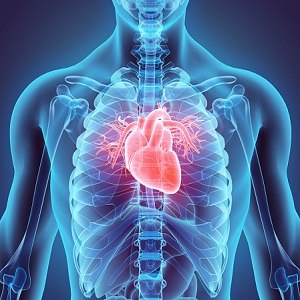Meditrina Hospital-Best Multispeciality Hospital in Nagpur | Best Critical Care
Author: meditrina_2017
EAR, NOSE AND THROAT
Best ENT Surgery Hospital in Nagpur, Otorhinolaryngology is a surgical subspecialty within medicine that deals with the surgical and medical management of conditions of the head and neck. Doctors who specialize in this area are called otorhinolaryngologists, otolaryngologists, head and neck surgeons, or ear, nose, throat surgeons. Best ENT Surgery Hospital in Nagpur ENT surgeons treat multiple conditions some of which include- Ear conditions include: otosclerosis (a condition of the middle ear that causes hearing loss) and other problems with hearing and deafness otitis media with effusion – a common condition of childhood (also known as glue ear) in which the middle ear becomes blocked with fluid age related hearing loss tinnitus (ringing in the ears) and eustachian tube dysfunction dizziness and vertigo ear infections perforated ear drum and cholesteatoma protruding ears Nose conditions include: sinus infection and rhino-sinusitis, including in children nasal injuries nasal polyps tumours of the nose nasal obstruction disorders of the sense of smell Throat conditions include: adenoid problems – surgical removal of these small glands in the throat at the back of the nose is sometimes needed, and is usually performed in childhood tonsillitis, sometimes requiring surgical removal of the tonsils, usually in childhood hoarseness and laryngitis swallowing problems upper airway breathing problems snoring and obstructive sleep apnoea (when breathing stops during sleep) ENT surgeons use many different surgical procedures including: Insertion of grommets for glue ear – this involves a very small incision in the ear drum and is typically carried out on children. The grommets help to ventilate the middle ear and resolve middle ear effusions Tonsillectomy (removal of tonsils) or adenoidectomy (removal of adenoids), most often in children Septoplasty – correction of nasal septum to prevent obstruction and enable clear breathing Microlaryngoscopy – a short metal tube (laryngoscope) is inserted into the larynx (voice box). This is used for examination and can also be used to perform a biopsy or surgery Oesophagoscopy – a long metal or flexible tube (oesophagoscope) is inserted through the mouth into the oesophagus Endoscopic sinus surgery – a tiny telescope is inserted into the nasal passages to diagnose and treat difficult sinus conditions. Technically refined instruments are then used to restore proper function Tympanomastoid surgery to reconstruct and remove epithelial inclusions (cholesteatoma) within the middle ear Open operations to remove neck lumps, and salivary gland tumours Tracheostomy
Neurology, Neurosurgery, Spine Surgery
Surgeries and treatments dealing with disorders of the nervous system including the brain, spinal cord, peripheral nerves, and extra-cranial cerebrovascular system. The department of Neurosurgery is concerned with the prevention, diagnosis, treatment, and rehabilitation of disorders that affect the brain, spine and peripheral nerves. Its range of services include brain surgeries which vary from intracranial tumours, skull base surgery, paediatric surgery, epilepsy surgery, endoscopic surgery, complex spine surgery to hydrocephalus surgery. Spinal disorders include: degenerative arthritis, spinal stenosis, herniated or degenerative disc disease, instability due to arthritis, trauma, scoliosis, spina bifida, osteoporosis, fractures and spinal cord tumours. Our specialists include the top neurologists and neurosurgeons in Nagpur, best spine Surgeons in Nagpur, who work together with our pain specialists, exercise physiologists, psychologists and psychiatrists and physiotherapists. Typical neurological procedures include: Lumbar puncture Neurologists may use a lumbar puncture to test the spinal fluid. They may recommend the procedure if they believe patients’ symptoms are caused by a problem in the nervous system that can be detected in the spinal fluid. The procedure involves inserting a needle into the spine after numbing it and taking a sample of spinal fluid. Tensilon test This procedure helps neurologists to diagnose myasthenia gravis. In this test, the doctor injects the patient with a medicine called Tensilon. Then they observe how it affects your muscle movements. Electromyography (EMG) An EMG measures electrical activity between the patient’s brain or spinal cord to a peripheral nerve. This nerve is found in your arms and legs and is responsible for muscle control during times of movement and rest. EMGs can help the neurologist to diagnose spinal cord disease as well as general muscle or nerve dysfunction. Electroencephalogram (EEG) With electrodes applied to your scalp, an EEG measures electrical activity in the brain. It’s used to help diagnose conditions of the brain, including inflammation, tumours, and injuries, as well as seizures and psychiatric disorders. Unlike an EMG, an EEG doesn’t usually cause any discomfort. Before the test, a technician places electrodes around the scalp that look like small cups. As small changes in the brain are measured through the electrodes, the technician will create changes in the environment to measure brain signals, such as different lighting or noises.
Respiratory,Interventional Pulmonary and Sleep Disorders
The health of your respiratory system can also be referred to as the area of medicine called pulmonology. Meditrina Hospital is Best Pulmonology Hospital in Nagpur Within the field of respiratory medicine, there is a relatively new area called interventional pulmonology. It uses endoscopy and other tools to diagnose and treat conditions in the lungs and chest, including COPD (Emphysema), asthma, lung cancer and tuberculosis. Interventional pulmonology procedures are offered by respiratory specialists who have undergone additional training. Some of the interventional procedures that are undertaken at the San include: Bronchoscopy Bronchial Thermoplasty (BT) Endobronchial Ultrasound (EBUS) Radial EBUS and cryobiopsy Endoscopic Lung Volume Reduction (ELVR) Dilatation/stenting of airways via flexible and rigid bronchoscopy Sleep disorders are a group of conditions that affect the ability to sleep well on a regular basis. Whether they are caused by a health problem or by too much stress, sleep disorders are becoming increasingly common. Most people occasionally experience sleeping problems due to stress, hectic schedules, and other outside influences. However, when these issues begin to occur on a regular basis and interfere with daily life, they may indicate a sleeping disorder. Meditrina Hospital is Best Pulmonology Hospital in Nagpur Depending on the type of sleep disorder, people may have a difficult time falling asleep and may feel extremely tired throughout the day. The lack of sleep can have a negative impact on energy, mood, concentration, and overall health. In some cases, sleep disorders can be a symptom of another medical or mental health condition. These sleeping problems may eventually go away once treatment is obtained for the underlying cause. When sleep disorders aren’t caused by another condition, treatment normally involves a combination of medical treatments and lifestyle changes Disorders like insomnia, sleep apnea, parasomnias, restless leg syndrome, narcolepsy, etc. These are diagnosed by- These are diagnosed by- polysomnography : a sleep study that evaluates oxygen levels, body movements, and brain waves to determine how they disrupt sleep. electroencephalogram : a test that assesses electrical activity in the brain and detects any potential problems associated with this activity. genetic blood testing : a blood test commonly used to diagnose narcolepsy and other underlying health conditions that might be causing sleeping problems. Medical treatment for sleep disturbances might include any of the following: sleeping pills melatonin supplements allergy or cold medication medications for any underlying health issues breathing device or surgery (usually for sleep apnea) a dental guard (usually for teeth grinding)
Cardiology, Cardio-Thoracic & Vascular Surgery
Surgical specialities or Best heart specialist in Nagpur in providing an all-inclusive programme for managing all heart-related diseases. Along with providing treatment for conditions of heart, thorax (chest), lungs, oesophagus, thymus, etc we excel at critical procedures like Bypass surgery, Heart Attack emergency care and many more. Modern surgery has developed to such an extent that the body of knowledge and technical skills required have led to Best heart specialist in Nagpur surgeons specialising in particular areas, usually an anatomical area of the body or occasionally in a particular technique or type of patient. Cardiothoracic surgery is the specialty involved with the treatment of diseases affecting organs within the thorax (the chest), principally the heart, lungs and oesophagus. Procedures are often lengthy and complex, requiring support from advanced forms of technology during surgery and intensive therapy for the patient after surgery. The major subspecialties of Cardiology and Cardiothoracic Surgery are cardiac, thoracic and congenital, each with its own characteristics. We have the best cardiac surgeons in Nagpur specialised in each of these areas with our intention to develop the best cardiology hospital in Central India. Cardiac – adult cardiac surgery is dominated by coronary heart disease but in an ageing population, the requirement for valve surgery is rising fast. Coronary artery surgery is probably the most studied operation of all time. Thoracic is concerned with conditions of the lungs, chest wall, oesophagus and diaphragm, and is generally dominated by treatment of malignant disease. Congenital – the most demanding type of cardiothoracic surgery, practised only by a small group of highly talented and specialised surgeons.






